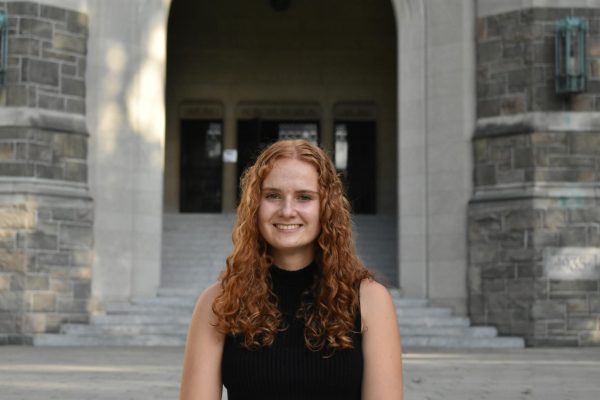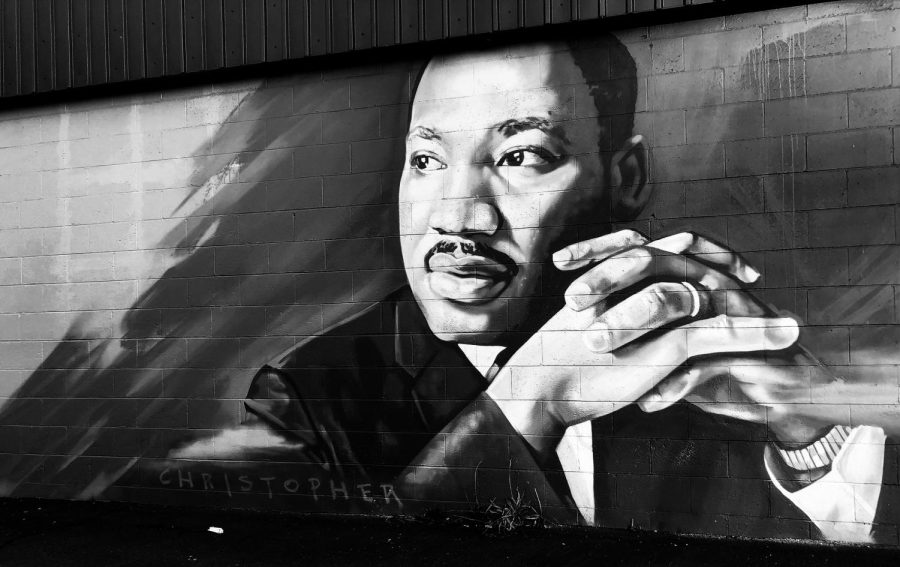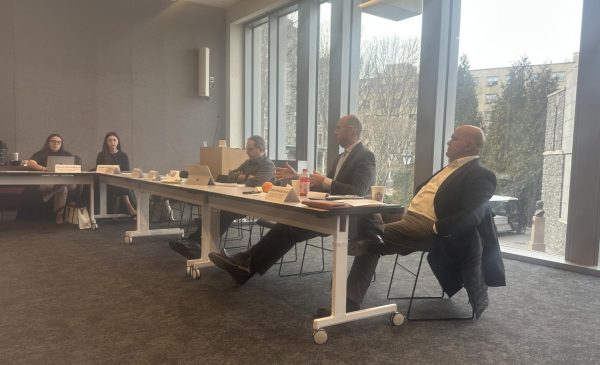Fordham’s OMA Hosts Martin Luther King Jr. Week
Martin Luther King Jr., a civil rights leader annually honored around his birthday, will be remembered from Jan. 18 to Jan. 21 by Fordham’s Office of Multicultural Affairs
This past week Fordham’s Office of Multicultural Affairs (OMA) hosted events in honor of Martin Luther King Jr. (MLK). The MLK Week of Celebration is meant to celebrate and remember King’s legacy in the United States. This year’s week of celebration began on Monday, Jan. 17, as the official holiday always falls on the third Monday in January. King’s actual birthday is on Jan. 15.
While some people have celebrated the holiday for years, MLK Day became an official federal holiday in 1983. The university closed so people could observe the holiday. In an email sent out to the Fordham community on Jan. 17, Rev. Joseph M. McShane, S.J., president of the university, reaffirmed the university’s commitment to racial justice.
“I promise you that that work goes on. It may seem sometimes to be overshadowed by other events in the life of the University, but our resolve to live up to Fordham’s Jesuit calling to be people for others remains strong. We may best honor Dr. King by continuing his work, and by emulating his devotion to the cause of racial justice,” wrote McShane.
Martin Luther King Jr. spent his life advocating for racial justice in the United States. King took on an active role in race relations in the United States around the mid-1950s, when racial segregation was still legal. King was born in 1929 in Atlanta, Ga. His father, Michael King Sr., was a Baptist pastor and involved in the racial justice movement. King was described to be a brilliant student, and he received his Ph.D. in systematic theology from Boston University in 1955. A year earlier, in 1945, King had taken over as pastor at Dexter Avenue Baptist Church in Montgomery, Alabama. In 1955, Martin Luther King Jr. was head of Montgomery, Alabama’s The National Association for the Advancement of Colored People (NAACP). In December of that year, Rosa Parks, an African American woman, refused to give up her bus seat to a white person, which was illegal at the time. Parks was arrested.
In response, King helped to organize the Montgomery bus boycott. As a result, Montgomery lifted the bus segregation mandate. This was King’s first considerable and visible action against racial injustices, but it certainly was not the last. Some of King’s other especially memorable actions were leading the Southern Christian Leadership Conference (SCLC) in 1957, the Greensboro sit-in in 1960 and, of course, his iconic “I Have a Dream” speech in 1963.
Martin Luther King Jr. was assassinated in 1968 by James Earl Ray. His death sparked protests all over the country. Many people attribute Martin Luther King Jr. with the passing of the Civil Rights Act of 1964 and the Voting Rights Act of 1965.
Today, MLK Day is celebrated in his honor and to remember his legacy.
“It is important to remember MLK Jr. because there are many important teachings that he left behind that we need to continue to understand,” said Lilibeth Ramos Flores, a graduate school intern in the Fordham Office of Multicultural Affairs. “The world is not devoid of racism or xenophobia, and Dr. King was a firm believer that our differences should not because for segregation but rather unity and love.”
During Martin Luther King Jr. Week, OMA hosted events ranging from a social media campaign to trivia tabling events to the screening of the movie, “King in the Wilderness.” The Instagram campaign occurred on @blackhistoryatfordham. The account posted information every day that highlighted a different part of King’s life. The campaign covered King’s childhood through his teen years and young adulthood as well as his general legacy and some of his influential quotes.
“King in the Wilderness” is an HBO movie documentary that covers King’s life and accomplishments. The movie includes information about his role in the Voting Rights Act of 1965 to his assassination.
OMA made the decision to celebrate and remember MLK for an entire week, instead of just Jan. 17.
“Dr. King’s teachings are not and should not be limited to one day of the year. It is not only on the 17th that Dr. King is important,” said Ramos Flores. “In that same breath, we cannot look at Black History Month as just existing in one month; it is relevant and important every day. Anti-racist teachings and marginalized identities do not only exist in the dates/timelines that are marked on a calendar.”
Additionally, OMA has found that doing programming for the entire week, instead of just for MLK Day, has allowed them to be able to fully capture his legacy, instead of just the most popular aspects.
“Just as any great historical figure, Martin Luther King Jr.’s history and legacy is a complicated one with parts that are often ignored or skewed for the sake of sugarcoating his message,” said Mary Olivette Bookman, FCLC’24, program liaison of the Black
History Month Committee at Lincoln Center.
“By celebrating Martin Luther King Jr. all week instead of just one day, we seek to showcase a fuller view of this great Civil Rights leader, one that extends beyond his ‘I Have a Dream’ speech to who he was as a person and why he continued fighting for what he did.”
OMA has found that honoring MLK day in this way is very important to students. In the past, the feedback they have received
from their programming has been overwhelmingly positive.
“We’ve heard from students in the past that MLK Week programming has meant a lot to them in terms of seeing our office continuing to highlight notable persons in history that are sometimes forgotten or passively mentioned. When you dedicate time, energy and resources to showcase identities and teachings from marginalized communities, you are better for it,” said Ramos Flores. “Students are better for it. The intention behind it is also very important. At OMA, we don’t view MLK Week programming as just a check box to tick off for the year, but rather something absolutely integral to students to help them feel welcomed and valued on campus.”
The organizers of MLK Week have found the program to be rewarding because the legacy of Martin Luther King Jr. feels
unique.
“I think the most rewarding thing about running a week like this is getting a chance to tell Martin Luther King Jr.’s full story, or at least much more of the full story than would normally be shared,” said Bookman. “We get time to educate but we also have time to reflect on what we have learned and the ramifications of all Martin Luther King Jr. did.”

Isabel Danzis is a senior from Bethesda, Md. She is double majoring in journalism and digital technologies and emerging media. The Ram has been a very...














































































































































































































